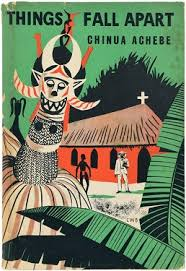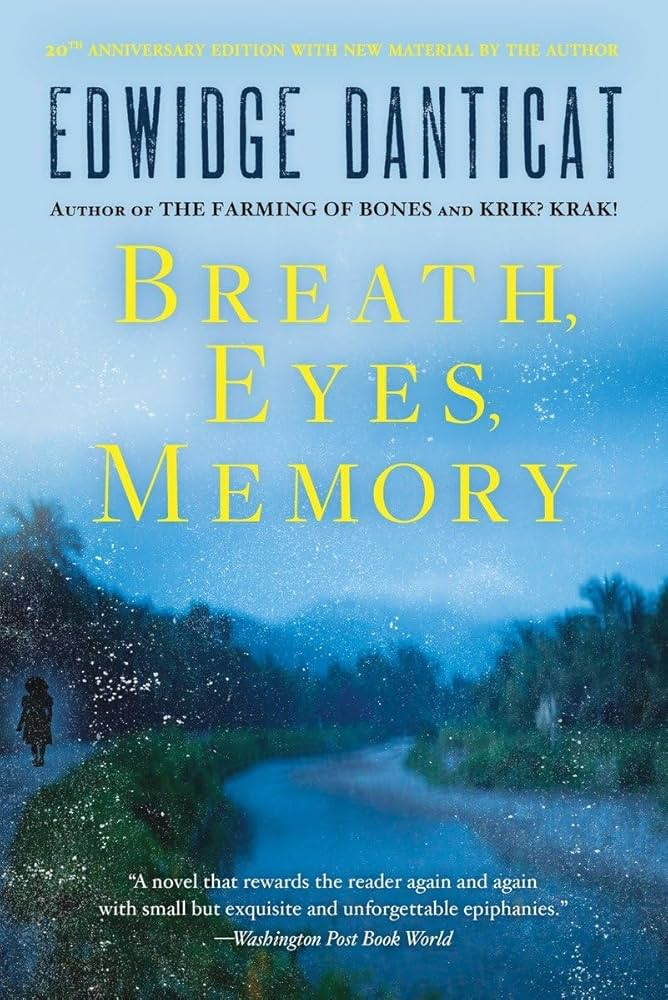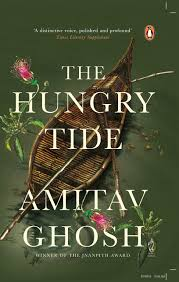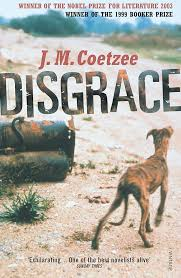22410: Paper 205A: Cultural Studies
The Intersection of Identity and Power in Cultural Studies: Analyzing Postcolonial Narratives
Table of Content :
Personal Information
Assignment Details
Abstract
Key Words
Introduction
Theoretical Frameworks in Postcolonial Cultural Studies :
Edward Said's Orientalism:
Homi Bhabha's Hybridity
Gayatri Chakravorty Spivak's Subaltern Studies
Identity Formation in Postcolonial Narratives
1. Disrupted Identities in Chinua Achebe's Things Fall Apart
2. Hybridity and Resistance in Jean Rhys's Wide Sargasso Sea
3. Subaltern Voices in Mahasweta Devi's Draupadi
Power Dynamics and Cultural Hegemony
1. Colonial Education in Ngũgĩ wa Thiong'o's Decolonising the Mind
2. Gendered Power in Arundhati Roy's The God of Small Things
3. Cultural Commodification in Salman Rushdie's Midnight's Children
Resistance and Reclamation
1. Oral Traditions and Memory in Edwidge Danticat's Breath, Eyes, Memory
2. Feminist Resistance in Chimamanda Ngozi Adichie's Purple Hibiscus
3. Eco-Critical Resistance in Amitav Ghosh's The Hungry Tide
Gender and Intersectionality
Trauma and Memory in Identity Reconstruction
Conclusion
Reference
Personal Information
Name : Khushi R. Rathod
Batch : 2023-25
Roll No : 16
Enrollment Number : 5108230039
Semester : 3
E- mail : khushirathod1863@gmail.com
Assignment Details
Paper No : 205A
Paper Code : 22410
Paper Name : Cultural Studies
Topic : The Intersection of Identity and Power in Cultural Studies: Analyzing Postcolonial Narratives
Submitted to : Smt.S.B.Gardi, Department of English,MKBU
Abstract
This paper explores the intricate relationship between identity and power in cultural studies, focusing on postcolonial narratives. These narratives delve into the complexities of colonial and postcolonial contexts, highlighting the fragmented identities and power hierarchies that define the experiences of the colonized. Employing theoretical frameworks such as Homi Bhabha's hybridity and Michel Foucault's discourse on power, the study examines the works of postcolonial writers like Chinua Achebe, Salman Rushdie, Jean Rhys, and Edwidge Danticat. The paper analyzes themes such as linguistic resistance, intersectionality, trauma, and subaltern voices, emphasizing how these narratives challenge Eurocentric canons and reclaim marginalized identities. By interrogating the impacts of colonialism and the resilience of cultural identities, this study contributes to a deeper understanding of identity formation and power dynamics in a globalized, postcolonial world.
Key Words :Postcolonial Narratives, Identity, Power Dynamics, Hybridity, Cultural Studies, Subaltern Voices, Intersectionality, Trauma, Eurocentrism, Resistance, Globalization
Introduction
The concept of identity and power is pivotal in cultural studies, particularly within postcolonial narratives. These narratives explore the complex interactions between colonizers and colonized, highlighting how identity and power structures are both challenged and perpetuated. Postcolonial writers use literature to critique colonial legacies, represent marginalized voices, and reconstruct histories that have been obscured. By examining works from postcolonial writers such as Chinua Achebe, Salman Rushdie, and Jean Rhys, this paper analyzes how identity is shaped by power dynamics and how these narratives challenge hegemonic structures.
Theoretical Frameworks in Postcolonial Cultural Studies
The analysis of postcolonial narratives is underpinned by diverse theoretical frameworks that elucidate the interdependence of identity and power:
Edward Said's Orientalism: Said's concept of Orientalism underscores the power-knowledge nexus, where the West constructs an "Orient" as the exotic, inferior "Other." This artificial binary fosters imperial control by defining and dominating the identity of colonized peoples.
Homi Bhabha's Hybridity: Bhabha introduces hybridity as a space where colonial and indigenous cultures intermingle, creating new, fluid identities. This process disrupts fixed notions of identity and resists colonial dominance through mimicry and ambivalence.
Gayatri Chakravorty Spivak's Subaltern Studies: Spivak's inquiry into subalternity addresses the erasure of marginalized voices within dominant power structures. Her critique interrogates whether the subaltern can truly "speak" within frameworks shaped by colonial and patriarchal forces.
Identity Formation in Postcolonial Narratives :
Identity, in postcolonial contexts, is often fragmented and hybrid. The imposition of colonial culture creates a crisis of identity for the colonized, as they are caught between their native traditions and the enforced colonial norms. Homi K. Bhabha's concept of "hybridity" illustrates this duality, where colonized subjects navigate a "third space" that disrupts binary oppositions between the colonizer and the colonized.
1. Disrupted Identities in Chinua Achebe's Things Fall Apart

Achebe's Things Fall Apart explores the collision of Igbo traditions with British colonial forces. The protagonist, Okonkwo, embodies the fragility of cultural identity amid colonial encroachment. Achebe critiques the cultural disruption caused by missionaries and colonial administrators, portraying the tragic fragmentation of Igbo society. The novel highlights how power—manifested through religion, language, and governance—erodes indigenous identity, creating a liminal space of cultural loss and adaptation.
2. Hybridity and Resistance in Jean Rhys's Wide Sargasso Sea

Rhys's prequel to Jane Eyre rewrites the story of Bertha Mason, contextualizing her descent into madness through the lens of colonial oppression. Antoinette, the protagonist, embodies the hybridity of her Creole identity—a convergence of European and Caribbean influences. The novel critiques the exploitation and dehumanization of women in colonial systems, emphasizing how power dynamics intersect with gender and race to fracture identity. Antoinette's resistance to these forces, though ultimately tragic, underscores the complexity of identity negotiation in colonial contexts.
3. Subaltern Voices in Mahasweta Devi's Draupadi

Devi's short story Draupadi centers on Dopdi Mejhen, an indigenous woman and revolutionary. Through Dopdi's resistance against state oppression, the narrative reveals the violent mechanisms of power that silence subaltern voices. Dopdi's defiance in the face of systemic violence reclaims her agency, challenging the patriarchal and colonial forces that seek to erase her identity. Devi's work underscores the resilience of marginalized communities and the necessity of amplifying subaltern voices in postcolonial discourse.
Power Dynamics and Cultural Hegemony
Power dynamics in postcolonial narratives are intricately linked to the cultural hegemony established during colonial rule. By reshaping education, language, and social norms, colonial powers sought to maintain control over colonized populations. Postcolonial narratives often critique these mechanisms, revealing the ways in which power perpetuates inequality and erases cultural diversity.
1. Colonial Education in Ngũgĩ wa Thiong'o's Decolonising the Mind

Ngũgĩ's seminal work critiques the role of colonial education in undermining indigenous languages and cultures. By enforcing European languages as the medium of instruction, colonial powers devalued native identities, creating a sense of inferiority among the colonized. Ngũgĩ advocates for the reclamation of indigenous languages as a means of cultural resistance and identity preservation.
2. Gendered Power in Arundhati Roy's The God of Small Things
Roy's novel explores the intersection of caste, gender, and colonial legacy in shaping power dynamics. The characters Ammu and Velutha embody resistance against societal norms that perpetuate oppression. Through their tragic love story, Roy critiques the ways in which power operates through caste hierarchies and patriarchal structures, silencing voices that challenge the status quo.
3. Cultural Commodification in Salman Rushdie's Midnight's Children
Rushdie's novel examines the commodification of culture in postcolonial India, portraying the ways in which political power appropriates cultural symbols for nationalist agendas. The protagonist, Saleem Sinai, symbolizes the fragmented identity of postcolonial India, shaped by historical trauma and political manipulation. Rushdie's use of magical realism highlights the tensions between tradition and modernity, exposing the complexities of cultural identity in a globalized world.
Resistance and Reclamation
While postcolonial narratives often depict the oppressive forces of power, they also celebrate acts of resistance and the reclamation of identity. Through storytelling, these narratives empower marginalized voices and challenge dominant ideologies.
1. Oral Traditions and Memory in Edwidge Danticat's Breath, Eyes, Memory
Danticat's novel emphasizes the role of oral traditions in preserving cultural memory and resisting colonial erasure. Through the intergenerational experiences of Haitian women, the narrative portrays the resilience of cultural identity in the face of displacement and trauma. Danticat's work highlights the importance of storytelling as a tool for reclaiming agency and asserting cultural heritage.
2. Feminist Resistance in Chimamanda Ngozi Adichie's Purple Hibiscus
Adichie's novel examines the intersection of gender, religion, and colonial legacy through the experiences of Kambili, a young Nigerian girl. The narrative critiques patriarchal and authoritarian power structures, portraying Kambili's journey toward self-empowerment. Adichie's emphasis on feminist resistance underscores the transformative potential of reclaiming identity in oppressive environments.
3. Eco-Critical Resistance in Amitav Ghosh's The Hungry Tide
Ghosh's novel integrates environmental and cultural themes to critique the exploitation of marginalized communities and ecosystems. The narrative centers on the Sundarbans, where local traditions and ecological knowledge resist the encroachments of modernization and capitalist power. Ghosh's work underscores the interconnectedness of identity, power, and the environment, advocating for sustainable and equitable futures.
Gender and Intersectionality
Postcolonial narratives often highlight how gender intersects with identity and power. Women, in particular, face layered oppression as both colonized subjects and gendered beings. Feminist postcolonial theory, as articulated by scholars like Gayatri Spivak, interrogates the silencing of women in colonial and nationalist discourses.
Example: Alice Walker's Everyday Use
Walker's short story delves into the tensions between traditional and modern African American identities. Dee, one of the central characters, seeks to reclaim her heritage but does so in a way that alienates her family. The story critiques both patriarchal and cultural power dynamics, illustrating the complexities of identity formation.
Trauma and Memory in Identity Reconstruction
Colonialism leaves deep psychological scars on individuals and communities. Postcolonial literature often explores the role of trauma and memory in shaping identity, reflecting the lasting impacts of colonial violence.
Example: J.M. Coetzee's Disgrace
Coetzee's novel examines post-apartheid South Africa, focusing on power relations and the lingering effects of racial trauma. The characters’ struggles with identity reflect the nation’s ongoing process of healing and reconciliation. Through this lens, identity becomes a site of both individual and collective memory.
Conclusion
The intersection of identity and power in postcolonial narratives is a rich site of inquiry that illuminates the complexities of cultural transformation and resistance. By examining the mechanisms of colonial control and the resilience of marginalized voices, these narratives offer profound insights into the enduring impacts of power on identity. Through storytelling, postcolonial authors reclaim agency, challenge hegemonic structures, and envision alternative possibilities for cultural and social justice. As Cultural Studies continues to evolve, the analysis of postcolonial narratives remains vital in understanding and addressing the dynamics of power and identity in our globalized world.
Reference :
Astrick, Tifanny. “(PDF) Patriarchal Oppression and Women Empowerment in Chimamanda Ngozi Adichie's Purple Hibiscus.” ResearchGate, 2019, https://www.researchgate.net/publication/334674218_Patriarchal_Oppression_and_Women_Empowerment_in_Chimamanda_Ngozi_Adichie's_Purple_Hibiscus. Accessed 19 November 2024.
Batool, Javairiah, and Amber Hafeez. “An Analysis of the Representation of Hybrid Culture and Transculturalism in Jean Rhys’s "Wide Sargasso Sea."” Researchgate, 2022, https://www.researchgate.net/publication/367644162_An_Analysis_of_the_Representation_of_Hybrid_Culture_and_Transculturalism_in_Jean_Rhys's_Wide_Sargasso_Sea. Accessed 19 November 2024.
Bhushan, Vishwa. “(PDF) An Ecology and Eco-Criticism in Amitav Ghosh's The Hungry Tide.” ResearchGate, February 2021, https://www.researchgate.net/publication/363061231_An_Ecology_and_Eco-Criticism_in_Amitav_Ghosh's_The_Hungry_Tide. Accessed 19 November 2024.
Giri, Pradeep Kumar. “Salman Rushdie's Midnight’s Children: Cultural Cosmopolitan Reflection.” Nepal Journals Online, 1 January 2021, https://nepjol.info/index.php/batuk/article/download/35349/27668/102913. Accessed 19 November 2024.
Kr, Kaushik. “Subaltern Voice In Mahasweta Devi's Draupadi.” Elementary Education Online, 15 December 2021, https://ilkogretim-online.org/index.php/pub/article/view/2178. Accessed 19 November 2024.
Nimer, Abdalhadi, and Abu Jweid. “(PDF) The fall of national identity in Chinua Achebe's Things Fall Apart.” ResearchGate, 2016, https://www.researchgate.net/publication/298710557_The_fall_of_national_identity_in_Chinua_Achebe's_Things_Fall_Apart. Accessed 19 November 2024.
Segall, Kimberly Wedeven. “Pursuing Ghosts: The Traumatic Sublime in J. M. Coetzee's Disgrace.” Researchgate, December 2005, https://www.researchgate.net/publication/236704852_Pursuing_Ghosts_The_Traumatic_Sublime_in_J_M_Coetzee's_Disgrace. Accessed 19 November 2024.
Sharma, Dr Shreeja Tripathi. “(PDF) Alice Walker's Everyday Use: Decoding Cultural Inheritance and Identity.” ResearchGate, January 2022, https://www.researchgate.net/publication/359264824_Alice_Walker's_Everyday_Use_Decoding_Cultural_Inheritance_and_Identity. Accessed 19 November 2024.
Sunny, Ferdiansyah, and Marudut Bernadtua Simanjuntak. “Article Review Negotiating with Trauma in Novel Breath Eyes Memory by Edwidge Danticat.” Researchgate, June 2022, https://www.researchgate.net/publication/361332805_Article_Review_Negotiating_with_Trauma_in_Novel_Breath_Eyes_Memory_by_Edwidge_Danticat. Accessed 18 November 2024.
Images : 11
Words : 1888
Thank you for visiting….









No comments:
Post a Comment